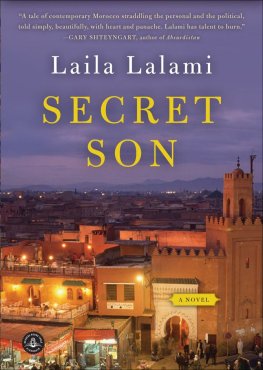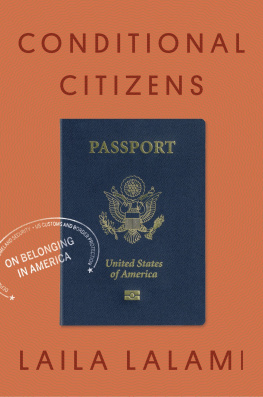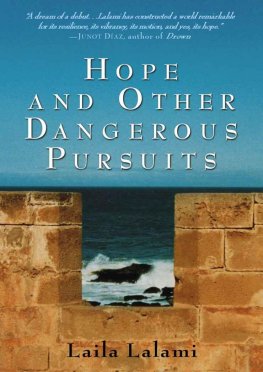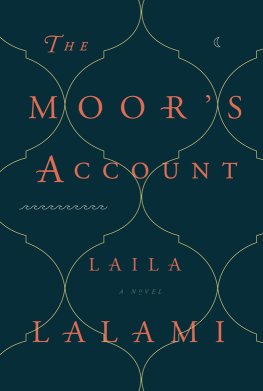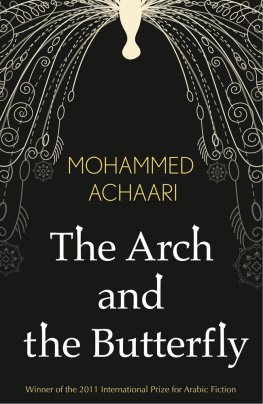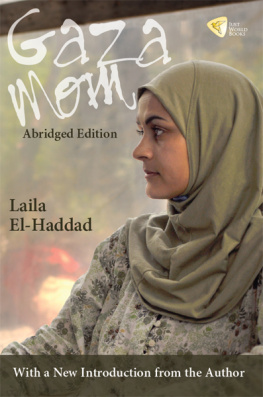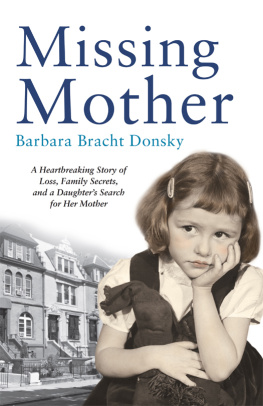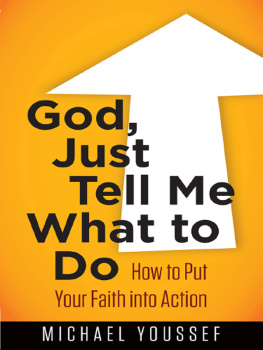For my father and for my mother
Silence is death
And you, if you speak, you die
If you are silent you die
So, speak and die.
TAHAR DJAOUT
The fact that I
am writing to you
in English
already falsifies what I
wanted to tell you.
GUSTAVO PREZ FIRMAT, Dedication
THE RAIN CAME UNEXPECTEDLY, after nearly three years of drought. In those days, Youssef still lived with his mother in a whitewashed house that huddled with others like it along a narrow dirt road. The house had one room with no windows, and a roof made of corrugated tin held down by rocks. The yard, where his mother did the cooking and the washing, was open to the sky. It was in the yard that she cleaned the sheep hides she took in on the day of Eid, and there Youssef received the rare friends who came to visit. The front door was painted blue, but over the years rust had eaten its edges, turning them reddish brown, so that holes had begun to appear at each of the four corners.
They were having lunch when it began to drizzle, the thin raindrops making craters as they landed on the fava bean soup. Youssefs mother looked up at the sky for a few surprised seconds, and then, as though a spark had ignited inside her, she jumped to her feet, grabbed the soup pot by its ears, and took it to the bedroom. Youssefs first thought was of the framed black-and-white picture of his father, which hung on the yard wall, above the divan. He took it inside, wiping the raindrops off the glass with the hem of his shirt. His father gazed back at him a young man in his twenties, in a dark suit and gray tie, with his hair combed back neatly, as if he were on his way to an important appointment. His smile was timid, or perhaps reluctant; Youssef had never been able to tell. He left the picture next to his bed and went back outside.
His mother had already picked up the bowls and the loaf of bread, so he grabbed the radio and carried it to the water closet. He lifted the divan on which they had been sitting and positioned it on its side, under the green awning that ran from the kitchen corner to the front door. There was just enough room there for the table as well. His mother finished collecting the laundry now everything was safe.
They stood together at the door of the bedroom, arms folded, watching the rain. The year might turn out to be good, Youssef said. He was thinking of the farm laborers who had been moving into the city, chased by the drought. They came from the Gharb, from the Chaoua, and even from as far south as Marrakech, here to Casablanca, where their teenage children crowded the markets and drove down wages for every kind of labor. Maybe this year there would not be as many of them.
His mother looked up at him. Were already in March, she said. Its too late for the rain to do most crops any good.
Your flowers, at least, wont mind it, Youssef said, glancing at the row of potted roses, daisies, and gardenias under the laundry lines. One by one, she had rescued the flowers from the trash cans at the hospital where she worked, brought them home, and nursed them back to health. It was a rare indulgence; she was a woman who valued work over pleasure, utility over beauty. And she was beautiful. The week before, she had turned thirty-nine, and though her hair was streaked with gray and her forehead lined with wrinkles, her green eyes and high cheekbones gave her a distinguished, almost aristocratic look.
At length, they sat down on the straw mat, facing the open door. Youssefs mother dipped her bread in the thick soup and tasted it. Its all cold now, she said. Ill reheat it for you.
Dont trouble yourself, a-mmi, he said. Always, she doted on him like this, as though he were eight instead of eighteen. Even though he discouraged her constant attention, it never occurred to him to resent it. He was her only child.
When they finished eating, he put on his sneakers and checked his watch. He wondered what movie he would see this week at the Star Cinema, but even before he could ask his mother for ticket money, she was already sorting through her purse. She handed him a coin. Dont forget your jacket, she said. He left the house, hunching his shoulders against the light rain, and headed for the theater.
THE STAR WAS NOT, strictly speaking, a cinema. This would have been obvious to anyone who visited the dilapidated building that stood across from a butcher and a tailor on one of the garbage-strewn alleyways of Hay An Najat. Nevertheless, that was the name that a Casablanca charitable association had given to the place where, every week, a new older movie was projected on a cracked screen, and where patrons competed with rats for space on the gutted seats. For five dirhams, Youssef could watch Hong Kong action films, Bollywood romances, Egyptian dramas, or American blockbusters. He never missed a show.
All his life, he had dreamed of becoming an actor. He had performed in the only play his high school had ever put on, a reenactment of the Green March, and he had spent long afternoons playing football, hoping to have the athletic chest that was appropriate for the moment when, shirtless, he would raise the Moroccan flag and lead his fellow civilians to reclaim the Spanish border post in the Sahara. He loved inhabiting the life of the hero, loved feeling his triumph, and when the audience applauded, a surge of euphoria, much like the one he had felt when he had tried hashish with Amin and Maati, ran through him. Of course, Youssef knew that his dream was unachievable no different than wanting to win the lottery when you cant even afford to buy a ticket but it provided a refuge from the more sobering turns he knew his life would, by necessity, have to take: finish high school, go to university, and, with any luck, find a steady job that would finally get his mother and him out of Hay An Najat.
This week, the Star Cinema was showing Boyz N the Hood. Right away Youssef knew that it would not be a big hit with his friends: there were no explosions, no car chases, and, most unforgivable of all, only one naked woman and she didnt even face the camera. But he stayed glued to his seat because of Laurence Fishburnes fatherly presence, his smooth voice and limitless experience. Youssef had lost his own father at the age of two, so his memories were few, and also faint. He remembered a tall man walking through the doorway, a hand tousling his hair, the smell of a stuffed pipe at night, but, maddeningly, little else.
Whatever tangible knowledge he had of his father came to him at second hand, from his mother. Nabil El Mekki was a fourth-grade teacher, respected by colleagues and students alike for his dedication. Back then, the family lived in an apartment in the Fs medina, though Nabil often worked odd jobs at night or on weekends to save enough money for a house. Some neighbors who were preparing for a big Eid party asked him to hang lights on their roof. He tripped on a wire and fell down three floors, breaking his neck on a cart filled with roasted sheep heads. He died instantly. It was an accident, the doctors said, though everyone called it fate mektub for how else could one accept that such a young man had died so needlessly?
Of course, Youssef and his mother werent the only people in Hay An Najat without a father or a husband, but they seemed to be the only ones without any family. She was an orphan, raised in the French orphanage at Bab Ziyyat. After her husbands death, she had moved from Fs to Casablanca but refused to stay in touch with Nabils parents, who had cheated her out of the meager inheritance. This was why, growing up, Youssef had often felt that he and his mother were both unmoored, somehow.

